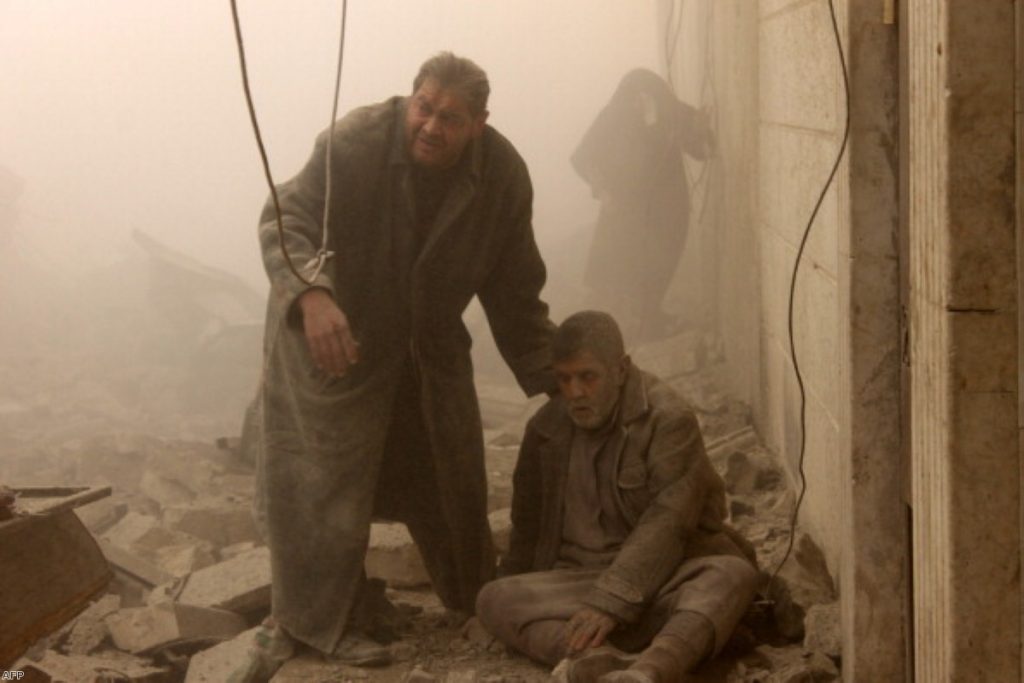Comment: Syria’s civilians have been left to die under siege
By Kristyan Benedict
Imagine for a moment being trapped under the rubble of your house after it’s just been bombed. Imagine the dust, the darkness, the claustrophobia and the pain.
Imagine the relief of being rescued by one of Syria's brave civil defence workers only to be taken to a dark, humid, underground hospital with no fresh air and relentless heat, because the doctors fear they too could be targeted in an airstrike.
These scenarios are real and the fears of Syrian civilians are a daily reality. In the past three years Syrian government air strikes have destroyed or damaged at least ten hospitals or other medical facilities in Eastern Ghouta, an area in the Damascus suburbs with 160,000-plus residents. These air strikes have killed at least 20 doctors and other medical workers and destroyed vital medical equipment and supplies, according to local monitoring groups and Physicians for Human Rights


This, then, is the daily reality for besieged civilians in Eastern Ghouta and many other parts of this crumbling nation. These horrors are not due to the genocidal fanatics of ISIS – these are due to the deliberate tactics of the Syrian military and its Commander in Chief, Bashar al-Assad. A 'leader' some commentators – and probably still some MPs – think could be a viable security partner against the 'terrorists'.
Amnesty's latest Syria report provides a reality check for anyone still thinking Mr Assad is a force for stability. Assad's strategy since the uprisings started in early 2011, was to punish, humiliate and terrorise any Syrian who dared oppose his tyrannical and corrupt rule or even just called for modest reform within the security and justice sectors. That psychotically vain 'love me or I'll kill you' attitude has led to the world's worst human rights and humanitarian catastrophe of the 21st century.
Three years after Syrian government forces first began their siege of parts of Eastern Ghouta, the civilians who remain there are in a dire and worsening situation. Amnesty's report shows how the Syrian government continues to use starvation of civilians as a method of warfare – this is a war crime. The prolonged siege on civilians is part of a widespread and systematic attack by government forces against the civilian population – this is a crime against humanity.
And whilst the Syrian government is responsible for the majority of violations in Eastern Ghouta, non-state armed groups, particularly the Army of Islam, have also committed war crimes. The Army of Islam has shelled populated centres in government-held territory neighbouring or near to Eastern Ghouta, and they're responsible for restricting the movement of civilians out of Eastern Ghouta as well as selling food and other life-saving assistance for inflated prices.
The UN Security Council did pass resolutions such as 2139 and 2165 which are meant to protect civilians; however, more than a year since they passed, the Security Council has failed to commit to taking further steps to ensure that the Syrian government and armed opposition groups comply with its demands. Instead, war crimes and crimes against humanity continue in clear violation of both resolutions.
Now more than ever is a time for the UN Security Council to unanimously enforce punitive measure against the Syrian government and other parties to the conflict for violating its demands.
The belligerents making civilian life hell in Eastern Ghouta and right across Syria need to feel some heat themselves. They need to feel that they can't get away with war crimes and that they will be held to account. One thing the UK and other Security Council members could do is assert their power and make clear their determination to ensure that those responsible for war crimes and other crimes under international law will be prosecuted in fair trials, notably by referring the situation in Syria to the Prosecutor of the International Criminal Court.
Kristyan Benedict is Amnesty International UK's Syria Campaign Manager
The opinions in Politics.co.uk's Comment and Analysis section are those of the author and are no reflection of the views of the website or its owners.

